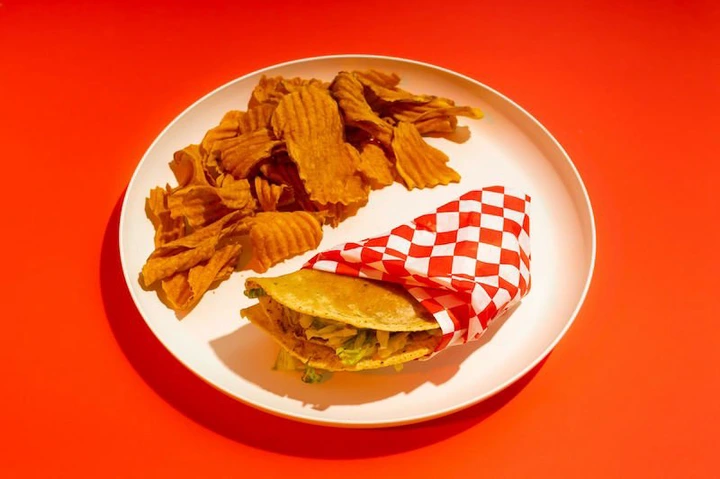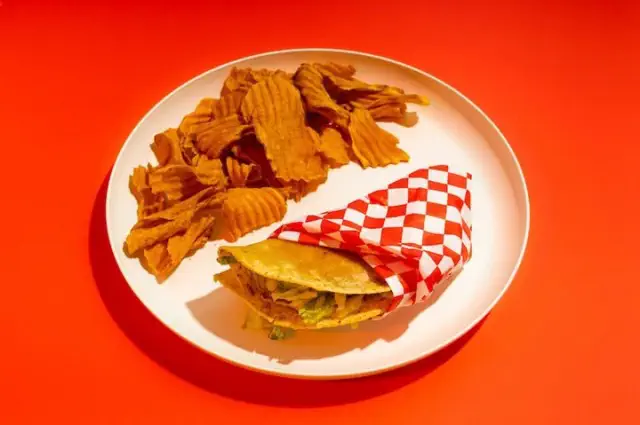
View pictures in App save up to 80% data.
Hypertension, commonly known as high blood pressure, is a prevalent health concern among older adults. If not properly controlled, it can result in severe complications such as heart disease, strokes, and kidney failure.
Although medications can be beneficial, maintaining a proper diet is essential for managing blood pressure effectively.
Some foods can exacerbate high blood pressure, making it crucial to understand what to steer clear of in order to maintain good health.
This article aims to identify foods that should be limited or avoided, supported by research-based evidence and clear explanations.
A major factor that contributes to high blood pressure is salt. Salt is rich in sodium, which leads to water retention in the body.
The additional fluid elevates the overall blood volume circulating in the bloodstream, resulting in increased pressure within the blood vessels.
A study published in the journal Hypertension found that reducing sodium intake can significantly lower blood pressure in people of all ages, including seniors. The American Heart Association recommends consuming no more than 1,500 milligrams of sodium per day for people with high blood pressure.
Items such as canned soups, processed meats, snack chips, and certain types of bread frequently contain significant amounts of concealed salt. By examining food labels and opting for low-sodium alternatives, you can effectively lower your salt consumption.
It's important to be cautious about sugary foods and beverages. Excessive sugar intake can result in weight gain and heighten the likelihood of insulin resistance, both of which may lead to elevated blood pressure levels.
A review in the journal Nutrients found that people who consumed high amounts of sugar-sweetened beverages had a higher risk of developing hypertension. Replacing sugary drinks like soda and sweetened teas with water, herbal tea, or unsweetened beverages is a simple way to make a positive change.
Foods that are rich in saturated and trans fats can negatively impact blood pressure. These unhealthy fats may lead to weight gain and promote the accumulation of plaque in the arteries, hindering blood flow and raising blood pressure levels.
Saturated fats can be found in items such as butter, fatty meats, whole milk products, and baked treats that contain shortening. On the other hand, trans fats, which pose an even greater risk to cardiovascular health, are commonly present in margarine, fried dishes, and processed snack foods.
The Journal of the American Heart Association reported that reducing the intake of these fats can improve blood pressure and overall cardiovascular health. Choosing lean proteins, healthy fats like olive oil, and plenty of fruits and vegetables is a much better alternative.
Caffeine is another factor to take into account. The impact of caffeine on blood pressure can differ from individual to individual; however, research indicates that it may lead to short-term increases in blood pressure, particularly in individuals who are not accustomed to consuming it.
If you have a sensitivity to caffeine, it may be wise to reduce your intake of coffee, energy drinks, and specific types of tea. A helpful guideline is to pay attention to how your blood pressure reacts after you consume caffeine and make adjustments as needed.
Alcohol is a substance that should be enjoyed in moderation. Excessive consumption can lead to elevated blood pressure and diminish the effectiveness of medications used to manage hypertension.
The American Journal of Hypertension found that limiting alcohol to one drink per day for women and two drinks per day for men can help manage hypertension. For some seniors, cutting out alcohol altogether might be the best choice.
Processed foods are notorious for their detrimental effects on blood pressure, primarily due to their high levels of salt, unhealthy fats, and added sugars. Common examples of these troublesome items are frozen meals, fast food options, and ready-to-eat snacks.
Preparing meals at home using fresh ingredients allows you to have greater control over the components of your dishes and helps you steer clear of these concealed risks.
To sum up, effectively managing high blood pressure with dietary adjustments requires selecting healthier food options and steering clear of specific products. Reducing the intake of salt, sugar, unhealthy fats, caffeine, and alcohol can significantly aid in regulating blood pressure levels.
Although it might seem daunting initially, minor adjustments can lead to significant improvements over time. By prioritizing fresh, whole foods and reducing the intake of processed items, older adults can make a crucial move towards enhancing their health and enjoying a longer, more vibrant life.
If you care about high blood pressure, please read studies about potatoes and high blood pressure, and top 10 choices for a blood pressure-friendly diet
For more information about high blood pressure, please see recent studies about impact of vitamins on high blood pressure you need to know, and the powerful link between high blood pressure and a potassium-rich diet.










